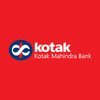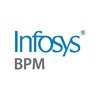Filter interviews by
Tvs Insurance Broking Interview Questions and Answers
Tvs Insurance Broking Interview Experiences
2 interviews found
I applied via Approached by Company and was interviewed before Dec 2021. There were 2 interview rounds.
(2 Questions)
- Q1. Basic Interview - like what you did in your previous organisation?
- Q2. What are the achievements in the previous organisation ?
(3 Questions)
- Q1. Same questions as HR, he will ask some industry related queries.
- Ans. Be bold and be genuine, because he will remember whatever you say in interview. even after a year you joined he will say as "at the interview you told like this and now you are doing like this." so be genuine and be honest. He wont look for efficiency in you, he will analyse, "either you will survive in this company or not".
- Q2. What is your father doing ?
- Q3. What is your mother doing ?
Interview Preparation Tips
Senior Manager Interview Questions asked at other Companies
Interview Preparation Tips
Experience: Excel Test its difficult but problem solved
Deputy Officer Interview Questions asked at other Companies
Top trending discussions






Interview questions from similar companies

I applied via Referral and was interviewed before Apr 2020. There were 3 interview rounds.
Interview Questionnaire
1 Question
- Q1. Technical questions on eloqua, email marketing
Interview Preparation Tips

I applied via Approached by Company and was interviewed before May 2021. There were 4 interview rounds.
Online questions were based on scenarios to write SQL queries. Also got few questions on Python as well for which I had only limited knowledge.
(8 Questions)
- Q1. I'm listing some of the questions here which the interviewers (2 panel resources) asked me regarding Informatica ETL, Oracle DB and I might have missed some of them. What types of indexes are used on Orac...
- Q2. What happens if Treat source row property as "Update" at session level but at target object "Delete" is checked?
- Ans.
The source row will be treated as an update, but the target object will be deleted.
The session level property 'Treat source row as Update' will be applied to the source row.
The target object will be deleted regardless of the update status of the source row.
This can result in data loss if the source row contains important information.
- Q3. What are the different types of dimension tables?
- Ans.
Dimension tables are used in data warehousing to provide descriptive information about the data in fact tables.
Slowly changing dimensions
Junk dimensions
Degenerate dimensions
Role-playing dimensions
Bridge dimensions
- Q4. What schema type was used in your previous project? And explain why it was used?
- Ans.
We used a relational schema in our previous project as it was suitable for the data structure and allowed for efficient querying.
Relational schema was used as it allowed for efficient querying of data
The data structure was suitable for a relational schema
We were able to easily join tables to retrieve necessary data
Examples include using SQL to query a database with multiple tables
Normalization was used to reduce data r
- Q5. Difference between Joiner and Lookup transformations?
- Ans.
Joiner combines data from multiple sources based on a common key, while Lookup retrieves data from a reference table based on a matching key.
Joiner is used to combine data from two or more sources based on a common key column.
Lookup is used to retrieve data from a reference table based on a matching key column.
Joiner can perform inner, outer, left, and right joins, while Lookup can only perform an inner join.
Joiner can...
- Q6. Scenario: I have records in a flat file ending with ; character at the end of each them. How to load these records into DB based on this character? What property will be used in Informatica?
- Q7. How version control happened in your previous project?
- Ans.
We used Git for version control in our previous project.
We created a Git repository for the project.
All team members were added as collaborators to the repository.
We followed the Git flow branching model.
We used pull requests for code review and merging.
We used tags to mark important releases.
We regularly pushed our changes to the remote repository.
We used Git commands like commit, push, pull, merge, and rebase.
We used...
- Q8. Which SCD type you worked on before and explain on that?
- Ans.
I have worked on SCD Type 2 before.
SCD Type 2 is used to track historical changes in data.
It creates a new record for each change and maintains a history of changes.
It includes start and end dates for each record.
Example: Tracking changes in employee salary over time.
(1 Question)
- Q1. This round was taken by the project manager on a phone call. He asked me few basic fundamental questions related to my skills and the things which I worked on in my previous project. He also told me about ...
(1 Question)
- Q1. Just F2F discussion with HR finalising on the compensation structure, learning opportunities and the organisational benefits as an employee.
Interview Preparation Tips
Skills evaluated in this interview

I applied via Recruitment Consultant and was interviewed before Sep 2020. There were 4 interview rounds.
Interview Questionnaire
7 Questions
- Q1. Why you want to change the Job ?
- Q2. What is accrual account and Journal entry ?
- Ans.
Accrual account is a type of account that records revenue or expenses that have been earned or incurred but not yet received or paid.
Accrual accounting recognizes revenue and expenses when they are earned or incurred, regardless of when the cash is received or paid.
Accrual accounts are used to record these transactions until they are paid or received.
Journal entry is the process of recording a transaction in the accoun...
- Q3. What is prepaid accounts and its journal entry ?
- Q4. Difference between the amortization and Depreciation ?
- Q5. Golden Rules
- Q6. Reconciliations meaning and process
- Ans.
Reconciliations involve comparing financial records to identify discrepancies and resolve them.
Reconciliations are important for ensuring accuracy in financial reporting.
The process involves comparing two sets of records, such as bank statements and accounting records.
Any discrepancies are identified and investigated to determine the cause.
Examples of reconciliations include bank reconciliations, accounts receivable re
- Q7. Self Introduction ?
Interview Preparation Tips

I applied via Walk-in and was interviewed before Sep 2021. There were 3 interview rounds.

This round include general aptitude questions
(2 Questions)
- Q1. Introduction and future goals?
- Q2. Why you want to work ??Why with us??
Interview Preparation Tips

I applied via Recruitment Consultant and was interviewed in Mar 2021. There were 3 interview rounds.
Interview Questionnaire
2 Questions
- Q1. Questions were totally related to my work.
- Q2. And also see how well knowledged you are
Interview Preparation Tips

I applied via Walk-in and was interviewed before Apr 2021. There was 1 interview round.
(2 Questions)
- Q1. What is accrual and it's entry
- Ans.
Accrual is an accounting method where revenue or expenses are recognized when earned or incurred, regardless of when payment is received or made.
Accrual accounting is the opposite of cash accounting
Accruals are recorded as adjusting entries in the general ledger
Examples of accruals include interest expense, salaries payable, and accounts receivable
The entry for an accrual involves debiting an expense account and credit
- Q2. What is contingency liability
- Ans.
Contingency liability is a potential liability that may occur in the future based on certain events or circumstances.
It is a liability that is not certain but may occur in the future
It is based on certain events or circumstances
Examples include lawsuits, warranties, and environmental cleanup costs
Interview Preparation Tips

I applied via Walk-in and was interviewed before Jun 2021. There was 1 interview round.
(2 Questions)
- Q1. Self introduction and any self topic in Hindi, about company
- Q2. Self introduction and a topic in Hindi
- Ans. Any general topic like about Hyderabad, best friend,about college
Interview Preparation Tips

I applied via Naukri.com and was interviewed before Jan 2021. There were 3 interview rounds.
Interview Questionnaire
1 Question
- Q1. Java Basic questions and Git
Interview Preparation Tips
Tvs Insurance Broking Interview FAQs
Tell us how to improve this page.
Interview Questions for Popular Designations
Tvs Insurance Broking Interview Process
based on 1 interview
Interview experience
Interview Questions from Similar Companies
Tvs Insurance Broking Reviews and Ratings
based on 19 reviews
Rating in categories
|
Assistant Manager
9
salaries
| ₹3.2 L/yr - ₹6.8 L/yr |
|
Insurance Executive
8
salaries
| ₹1.5 L/yr - ₹3 L/yr |
|
Deputy Officer
7
salaries
| ₹2.4 L/yr - ₹5.2 L/yr |
|
Business Analyst
4
salaries
| ₹1.9 L/yr - ₹11.1 L/yr |
|
Manager
4
salaries
| ₹6.5 L/yr - ₹12.5 L/yr |

TCS

HDFC Bank

ICICI Bank

Genpact
- Home >
- Interviews >
- Tvs Insurance Broking Interview Questions









